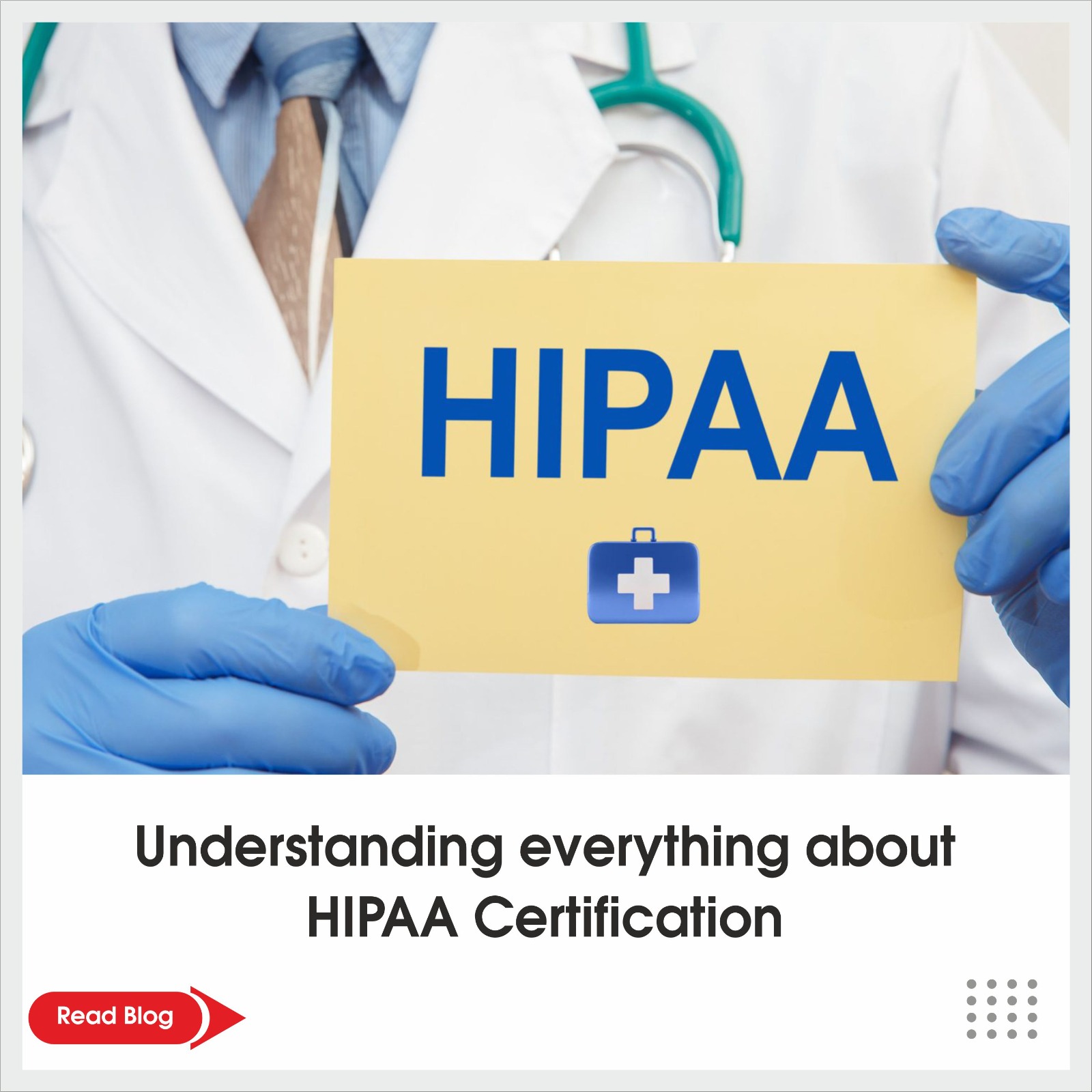Data privacy and information security are significant in all industries, including the healthcare and IT sectors. The acronym HIPAA refers to the Health Insurance Portability and Accountability Act. It also assists organisations in protecting individuals’ private and sensitive data to maintain the integrity and confidentiality of health information. The certification oversees and tracks adherence to domestic and global best practices to preserve the integrity of the healthcare system.
What is HIPAA Certification?
Obtaining a HIPAA Certification confirms that a company complies with the 1996 Health Insurance Portability and Accountability Act (HIPAA). HIPAA’s main objective is to protect people’s protected health information (PHI). PHI is any information about a person’s medical history, current condition, course of treatment, or amount paid for medical care.
HIPAA is a comprehensive evaluation of an organisation’s technology infrastructure, policies, and practices to monitor and maintain compliance with the regulation.
Why is HIPAA Certification important for Organisations?
Legal Compliance – Organisations with HIPAA Certification monitor and maintain legal compliance with the certification requirements to protect PHI. However, non-compliance and non-conformities can attract heavy fines and penalties that can damage its brand value.
Enhances clients’ and customers’ trust and reputation – Patients trust healthcare organisations with their most private and sensitive information. Patients feel more at ease knowing that their data is handled with the highest care and security thanks to HIPAA Certification. Achieving a HIPAA Certification enhances an organisation’s credibility and reliability to ensure privacy and information security.
Data Security – Strong security measures, such as encryption, access controls, and frequent audits, are required for HIPAA certification. Additionally, the certification supports the organisation’s general data security culture to guard against possible breaches and growing cybersecurity threats.
A List of Organisations that can apply for HIPAA Certification
HIPAA Certification is relevant for multiple organisations within the healthcare ecosystem. The following are the main categories of organisations that can benefit from HIPAA Certification :-
1. Hospitals and Clinics
2. Insurance Companies
3. Healthcare Clearinghouses.
4. Business associates handling Protected Health Information (PHI)
5. Information Technology (IT) Service Providers
6. Legal firms
What are the benefits of HIPAA Certification?
HIPAA certification applies to various industries and offers a goldmine of benefits. The following are the benefits of HIPAA certification :-
- Organisations can lower the legal risks connected to non-compliance through HIPAA Certification. Moreover, it helps organisations monitor and manage the legal complexities to avoid expensive penalties and fines.
- HIPAA Certification is a hallmark of trust and credibility that demonstrates an organisation’s commitment to patient privacy protection. Moreover, it increases patient trust and confidence in the organisation by ensuring patient satisfaction and loyalty.
- Organisations shall implement robust security measures to guarantee data privacy and information security to improve overall data security posture. Furthermore, it promotes a mindset of continuous data security practice to protect individuals’ information against potential breaches.
- Organisations investing in HIPAA Certification gain a competitive edge in the cutthroat healthcare market. It is a differentiator that helps them stand out from rivals and draws clients and partners who value privacy and data security.
Conclusion
Data is the foundation of healthcare in the digital age, and HIPAA Certification is an essential tool to protect data from threats. The certification process is also a calculated financial investment apart from a legal necessity. HIPPA certification upholds legal compliance with privacy and information security regulations to improve patient trust and organisational resilience.

